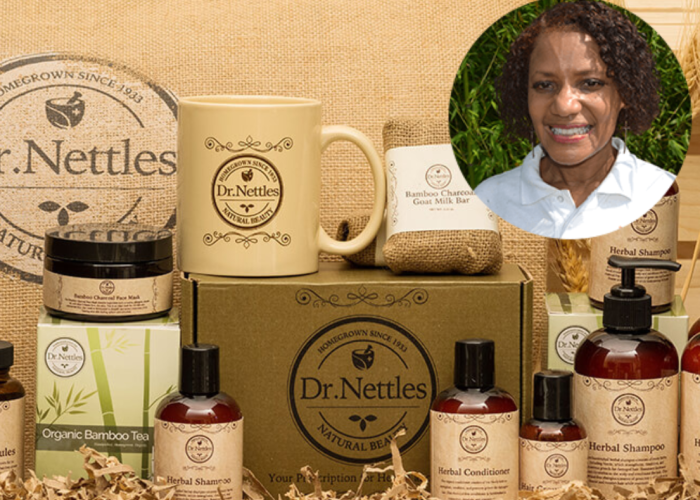-
Advocacy
Advocacy
We serve as the unifying voice of the U.S. organic industry on Capitol Hill, and we advance our mission to promote and protect organic agriculture and trade through legislative and regulatory advocacy.
As the only trade association working on behalf of the organic sector, we build and retain meaningful relationships with Members of Congress and their staff, USDA’s National Organic Program, NOSB, and the FDA on food and farming policy.
-
Membership
Membership
We bring farmers, processors, distributors, retailers and others together to promote and protect the growing organic sector.
We represent our members to government on sector needs, market development and promotion, and strong organic standards and regulations. Members also receive the latest information and quick answers on organic regulations and standards in the U.S. and around the world.
-
Market Analysis
Market Analysis
Our insightful and comprehensive data reports on the U.S. organic industry illustrate the positive economic impact of organic agriculture and products, and the importance of consumer choice in the marketplace.
Whether you're looking for the size of the organic market, organic industry trends or insights into the organic consumer, we are here to help.
-
International Trade
International Trade
We bring the U.S. organic industry to developing markets around the world through our U.S. Organic Worldwide programs.
As a cooperator with USDA’s Foreign Agricultural Service Market Access Programs, we create new opportunities for organic products through international promotions, organic exporter education, business to business connections, and trade negotiations.
-
Programs & Events
Programs & Events
From our signature policymaking event, Organic Week in Washington, D.C., to a full roster of education and networking events at the Natural Products Expos, join us for association business, member meetings, and social and networking events.
If you’re looking for high-level networking opportunities, exciting venues to showcase your brand, and a guaranteed good time with an always-organic menu, then join us for any of our many activities throughout the year.
-
Resources
Resources
We educate influencers and consumers about the benefits organic practices and products. This includes having an expansive social media presence, as well as actively engaging with the press to share facts about organic methods, benefits, and milestones.
Check out our expansive collection of informative resources that explain what organic is, and why it is definitely worth it.
- Organic 101
- How is organic food grown?
- How are animals raised organically?
- How is organic food processed?
- Organic for your Home and Body
- Organic Standards
- Organic Verification and Certification
- Labeling Organic Products
- The Value of Organic
- Health Benefits of Organic
- Environmental Benefits of Organic
- Organic and GMOs
-
About OTA
About OTA
We are your connected community of organic innovators and pioneers. Our path forward is organic.
As the membership-based business association for organic agriculture and products in North America, we are the leading voice for the organic trade in the United States, representing over 9,500 organic businesses across 50 states. Our Board of Directors is democratically elected by our members.
Main Menu New
- Advocacy
- Membership
- Market Analysis
- International Trade
- Programs & Events
- EVENTS
- Organic Industry Events Calendar
- Organic at Expo West
- Organic Week in Washington, D.C.
- Organic at Expo East
- Organic Center Virtual Benefit
- Organic PAC Fundraisers
- EDUCATION AND TRAINING PROGRAMS
- Transition to Organic Partnership Program (TOPP)
- Organic Education Webinars
- Organic Fraud Prevention Guide
- Research and Promotion
- Organic Agronomy Training Service (OATS)
- Resources
- Organic 101
- How is organic food grown?
- How are animals raised organically?
- How is organic food processed?
- Organic for your Home and Body
- Organic Standards
- Organic Verification and Certification
- Labeling Organic Products
- The Value of Organic
- Health Benefits of Organic
- Environmental Benefits of Organic
- Organic and GMOs
- Downloads & Toolkits
- Diversity Resource Library
- Organic Opportunity Communications Toolkit
- Good Organic Retail Practices (GORP) Guide
- "Not in Organic" Toolkit
- Organic Myth-Busting Resources
- Organic 101 Brochure + Social Graphics
- About OTA
- Our Work
- Our Mission and Vision
- News Center
- Bold Steps Initiatives to Advance Organic
- Justice, Equity, Diversity, and Inclusion Commitment
- Annual Report
- Bylaws
- The Organic Center
- Ways to Support
- Our Leadership
- Board of Directors
- Member Councils, Task Forces and Forums
- Organic Political Action Committee
- Organic Leadership Awards
- OTA Staff
- Join the Team
- Advocacy
- Critical Issues
- Policy Positions
- Organic Standards
- Comments Filed Archive
- Submit a Complaint to USDA
- Membership
- OTA Members
- Find.Organic Business Directory
- Get Involved in Member Communities
- Member of the Year Award
- Member Benefits
- Types of Membership
- Apply Online
- Market Analysis
- International Trade
- Programs & Events
- EVENTS
- Organic Industry Events Calendar
- Organic at Expo West
- Organic Week in Washington, D.C.
- Organic at Expo East
- Organic Center Virtual Benefit
- Organic PAC Fundraisers
- EDUCATION AND TRAINING PROGRAMS
- Transition to Organic Partnership Program (TOPP)
- Organic Education Webinars
- Organic Fraud Prevention Guide
- Research and Promotion
- Organic Agronomy Training Service (OATS)
- Resources
- Organic 101
- How is organic food grown?
- How are animals raised organically?
- How is organic food processed?
- Organic for your Home and Body
- Organic Standards
- Organic Verification and Certification
- Labeling Organic Products
- The Value of Organic
- Health Benefits of Organic
- Environmental Benefits of Organic
- Organic and GMOs
- Downloads & Toolkits
- Diversity Resource Library
- Organic Opportunity Communications Toolkit
- Good Organic Retail Practices (GORP) Guide
- "Not in Organic" Toolkit
- Organic Myth-Busting Resources
- Organic 101 Brochure + Social Graphics
- About OTA
- Our Work
- Our Mission and Vision
- News Center
- Bold Steps Initiatives to Advance Organic
- Justice, Equity, Diversity, and Inclusion Commitment
- Annual Report
- Bylaws
- The Organic Center
- Ways to Support
- Our Leadership
- Board of Directors
- Member Councils, Task Forces and Forums
- Organic Political Action Committee
- Organic Leadership Awards
- OTA Staff
- Join the Team
Add your voice to shape the future of organic food and farming.
Get expert regulatory guidance and consumer education tools.
Connect to a vibrant community of organic business professionals.

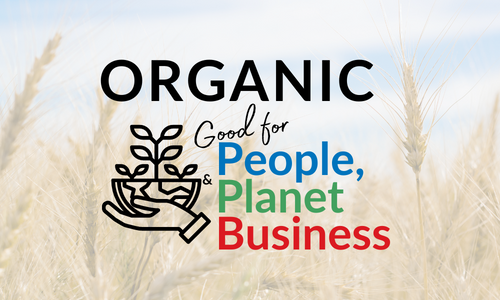

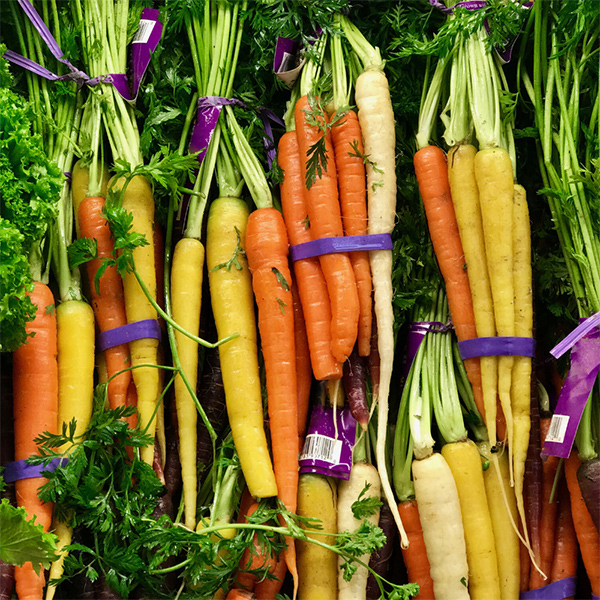



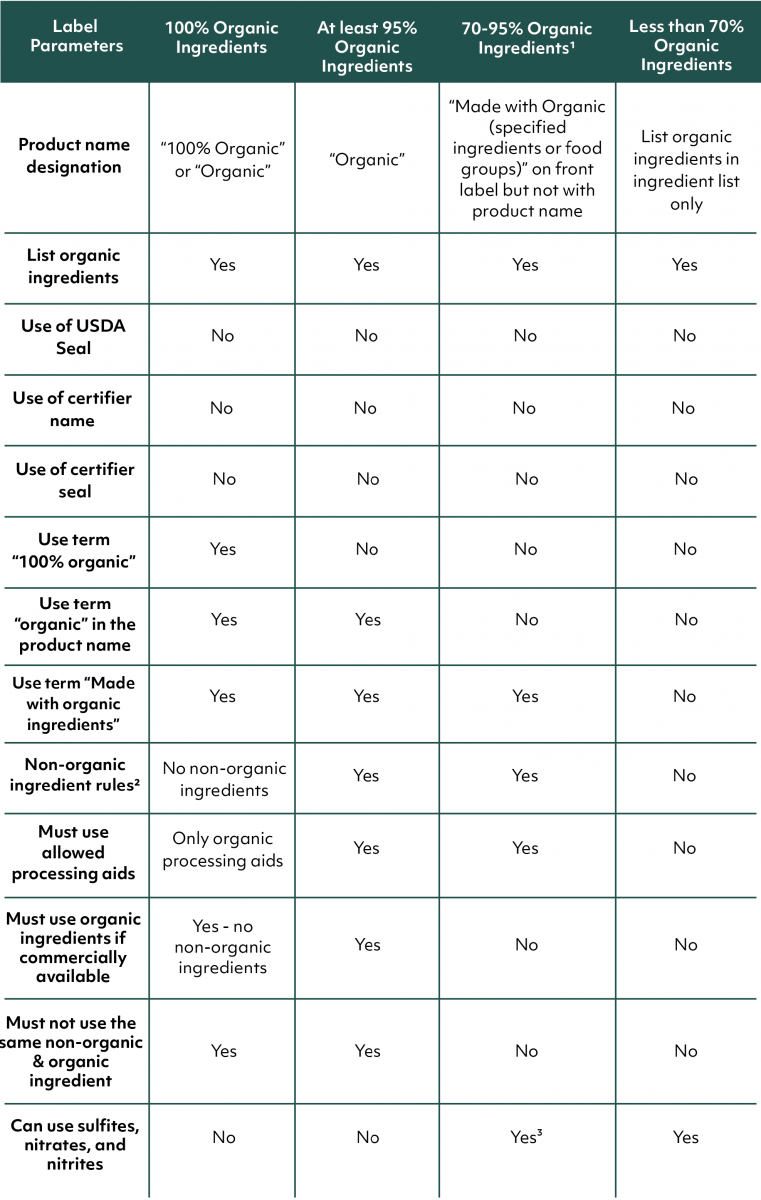
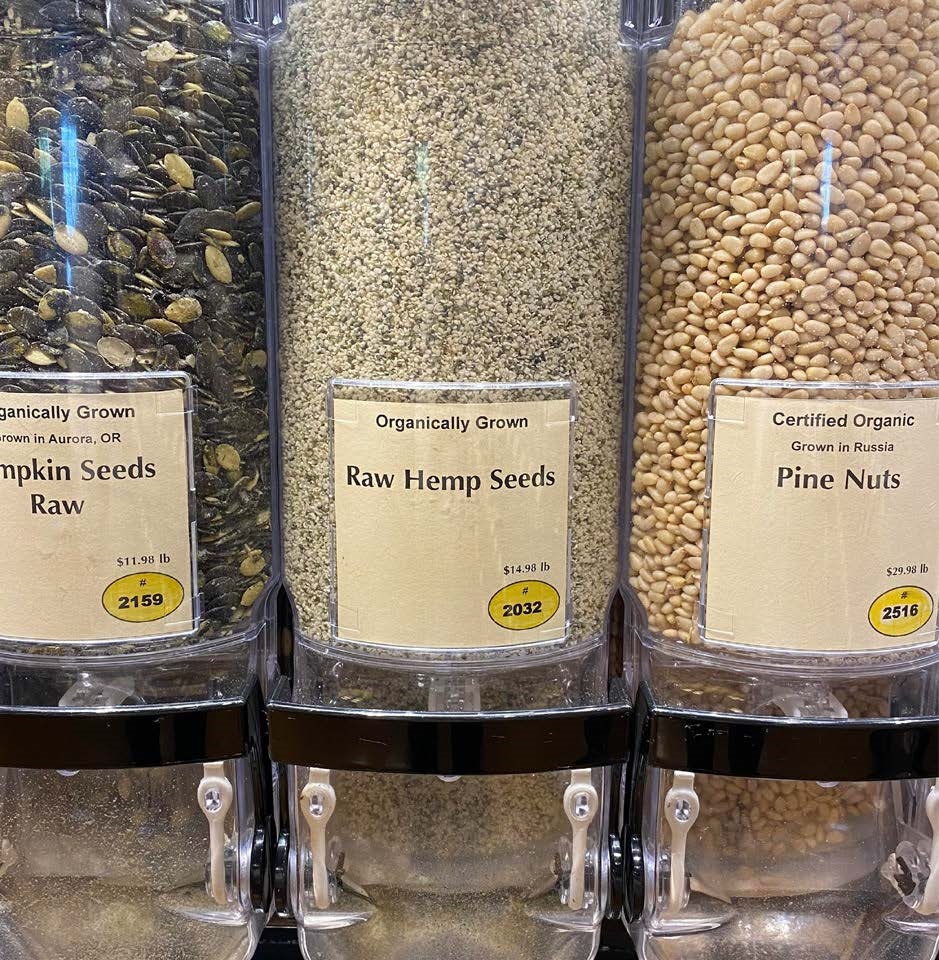 Any prepackaged organic product sold by a retailer in the same package that it was received in may maintain whatever labeling it arrived in.
Any prepackaged organic product sold by a retailer in the same package that it was received in may maintain whatever labeling it arrived in.


